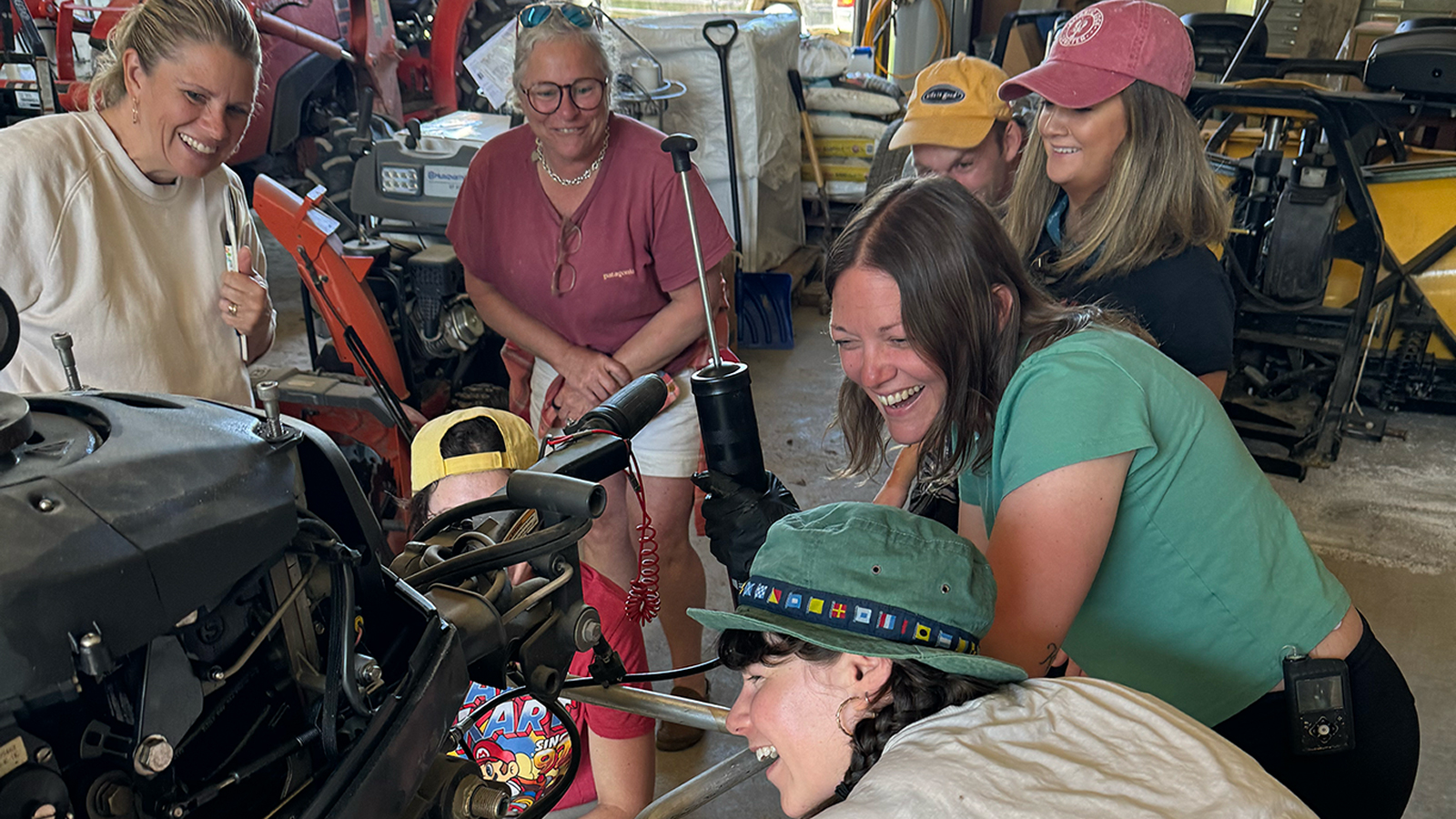
Aquaculture Bootcamp 2024
by Maine Sea Grant’s Annie Fagan
As an outdoor educator and now a marine extension associate with Maine Sea Grant, I love when my passions for experiential learning and aquaculture can collide. This is exactly what happened at the end of May at our inaugural Aquaculture Bootcamp.
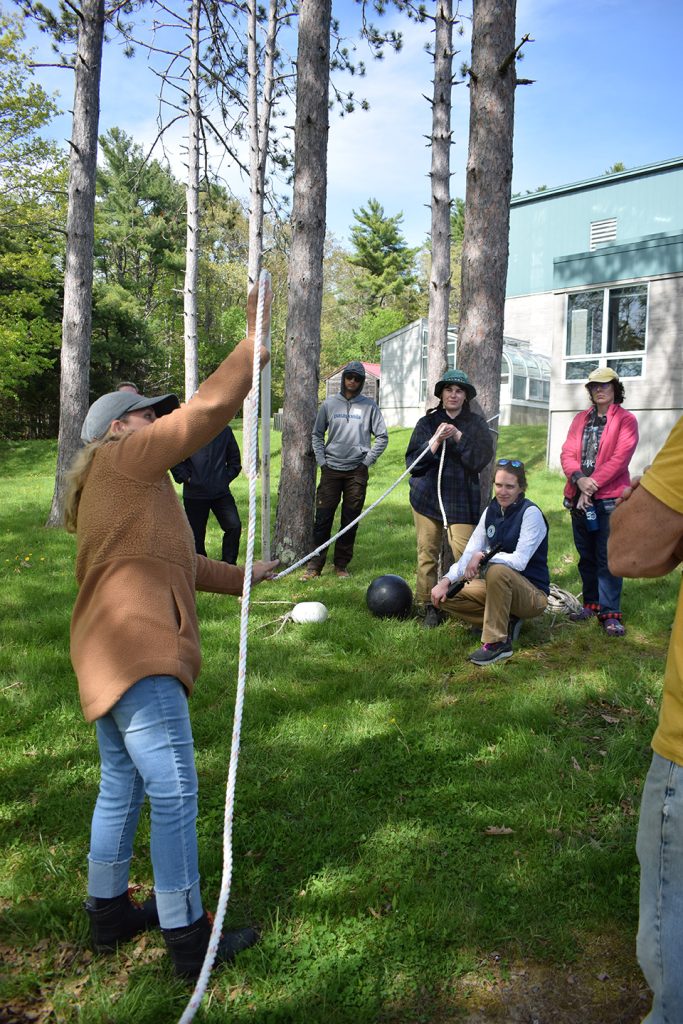
Aquaculture in Shared Waters is a longstanding seminar-style training program that provides training on sea farming and entrepreneurship by covering topics such as business planning, marketing, biosecurity, and animal and sea vegetable husbandry. The program is a collaboration between several partners: Maine Sea Grant, the Maine Aquaculture Innovation Center (MAIC), Coastal Enterprises, Inc. (CEI), the University of Maine School of Marine Sciences and the Maine Aquaculture Association. We often receive feedback from students saying that they want more hands-on practice with the skills necessary to run a sea farm. This spring, we set out to create a new training in response to these requests, hosted at the Darling Marine Center in Walpole, Maine.
The operating principle for the week was, “No Powerpoints!” (OK, we might have snuck in one or two.) We wanted each lesson to be hands-on and include opportunities for students to practice what they learned. As anyone who works on the water knows, there are a lot of different skill sets that can come in handy when it comes to running your business, and rarely does any one person know how to do it all. So we enlisted a small army of about fourteen instructors to help teach classes, including staff from Maine Sea Grant, MAIC, the Carpenter’s Boat Shop, the Aquaculture Research Institute, Pemaquid Oyster Company, and the Darling Marine Center.
And so Aquaculture Bootcamp 2024 began: bright and early Monday morning, with some introductions to help the group get to know one another. Students ranged in age from their twenties to their fifties and hailed from all parts of the Maine coast, Kennebunkport to Lubec. Because the aim of the course was to provide foundational skills to newcomers, most had little to no experience with aquaculture. Some were in the process of starting up their own farms; others were new hires on sea farms, current or past participants in aquaculture workforce development programs such as Educate Maine’s Aquaculture Pioneers program or the Maine Aquaculture Apprenticeship offered by the Gulf of Maine Research Institute and the Maine Aquaculture Association, and students enrolled in an aquaculture course at Washington County Community College. All shared an enthusiastic curiosity and a desire to master new skills and build community with others working on the water. We agreed to work together, stay open to trying new things, share our knowledge with others – and have a good time, too!
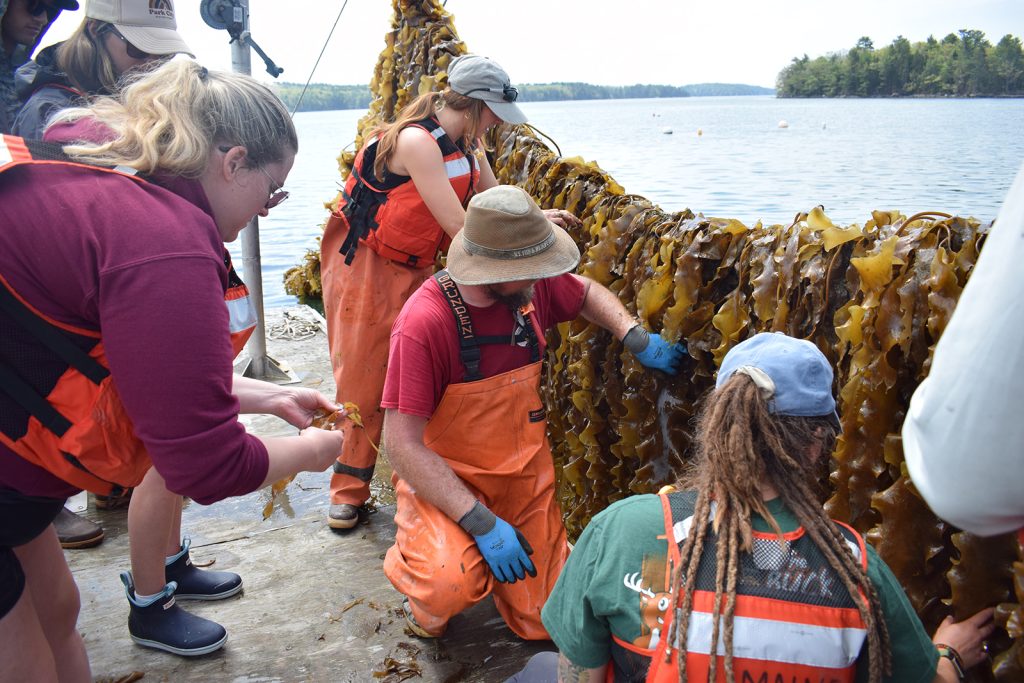
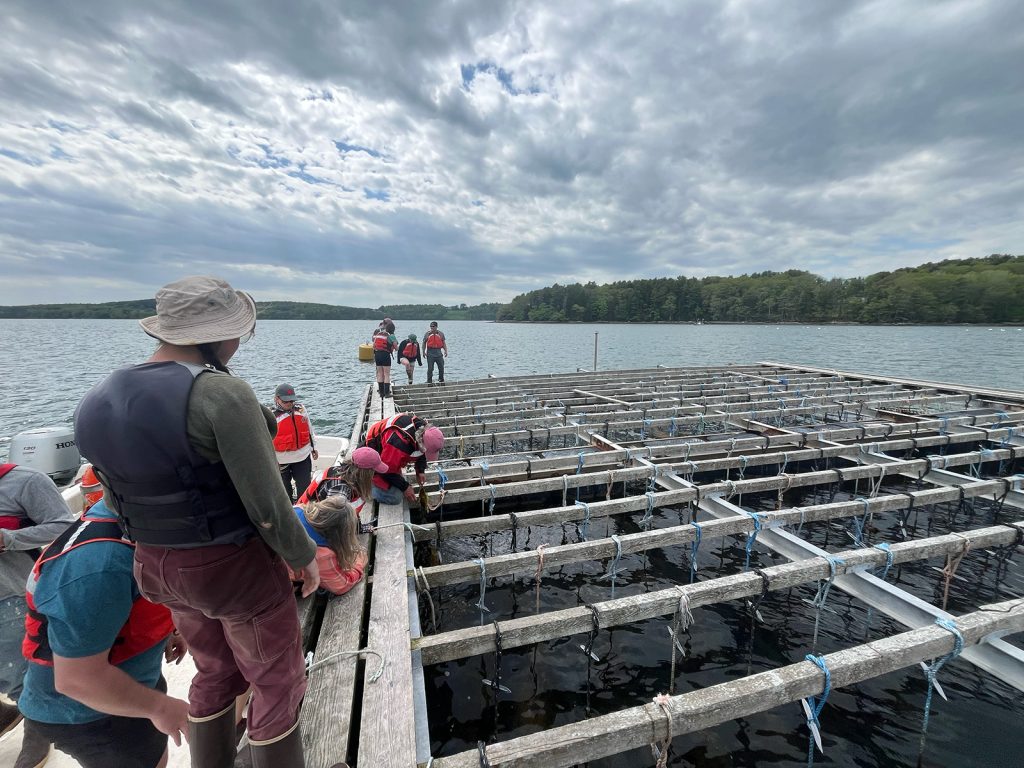
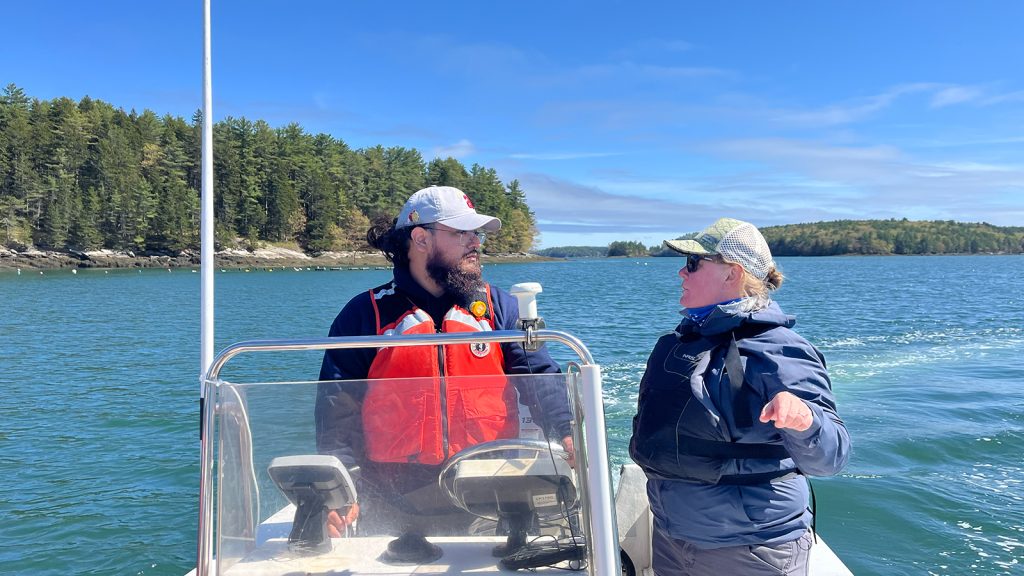
Splitting up into four groups (Team Kelp, Team Oysters, Team Scallops, and Team Clams) allowed for small-group learning and lots of one-on-one support from instructors. In coastal navigation, students learned how to read nautical charts and practiced taking a bearing with a hand compass and plotting a course. In vessel handling out on the Damariscotta River, students took turns maneuvering a small skiff, reversing, and holding their position against wind and current – before moving on later in the week to more complex skills like docking, towing another skiff on the hip and putting a boat onto a trailer. Lessons at Schooner Landing in Damariscotta by staff at Pemaquid Oyster Company explored the techniques and equipment needed to raise young oysters (“seed”). Whether they were dissecting shellfish in anatomy class, splicing for the first time, or harvesting kelp in nearby Clarks Cove, these students sure jumped in with both feet! They taught us as much as we taught them, often pitching in during lessons to show another way to do something, or recounting a personal story to help illustrate a point.
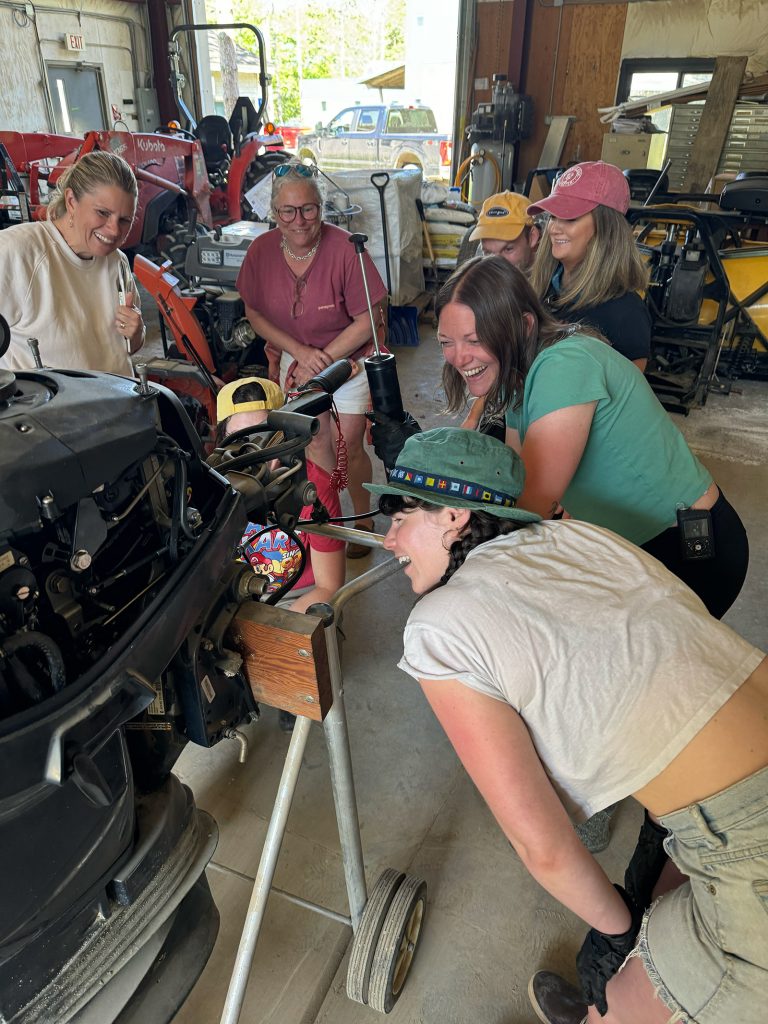
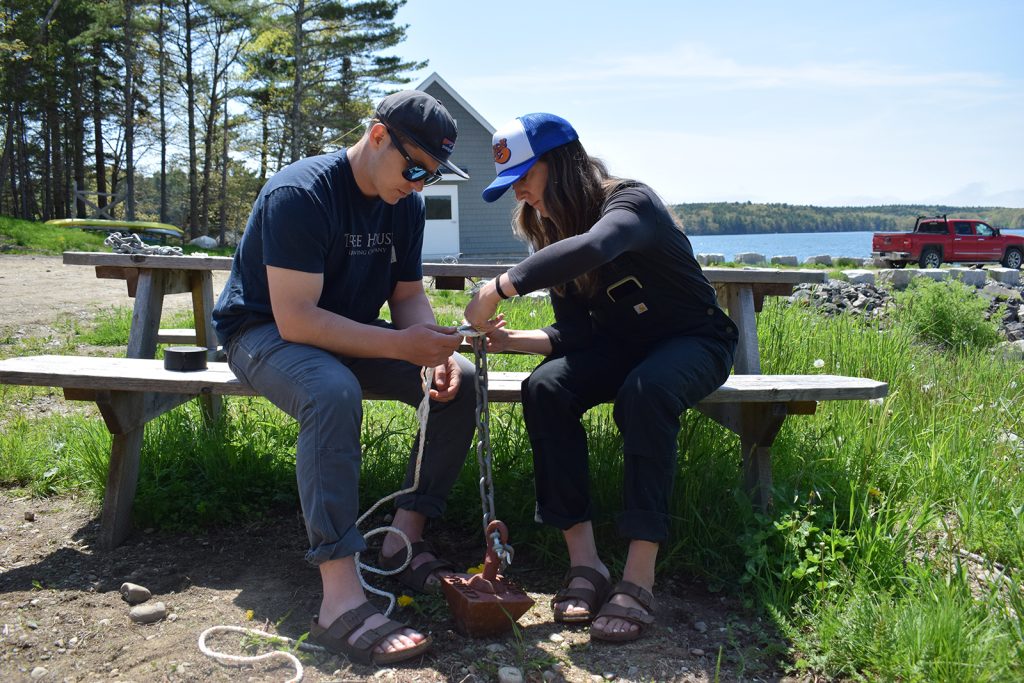
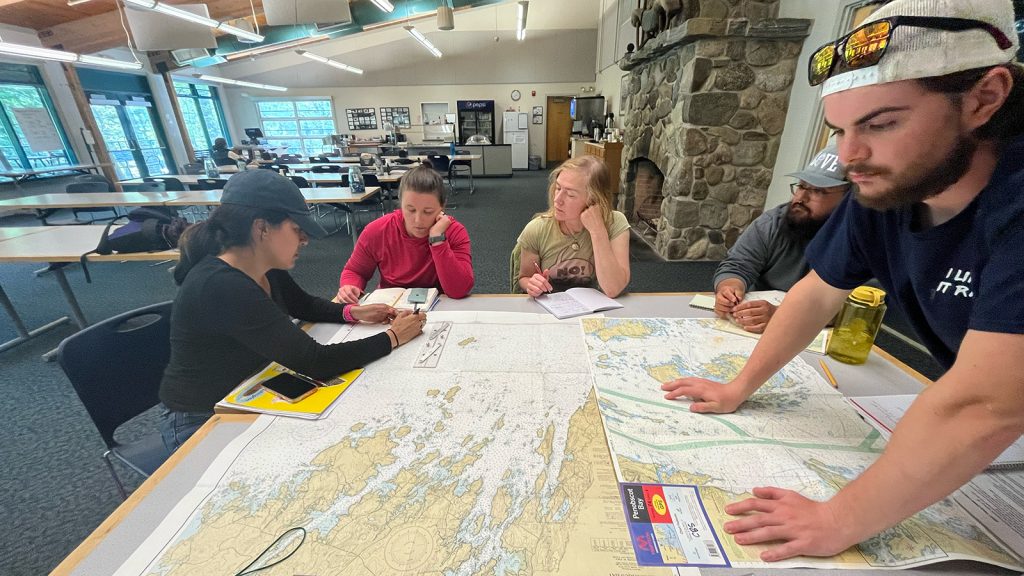
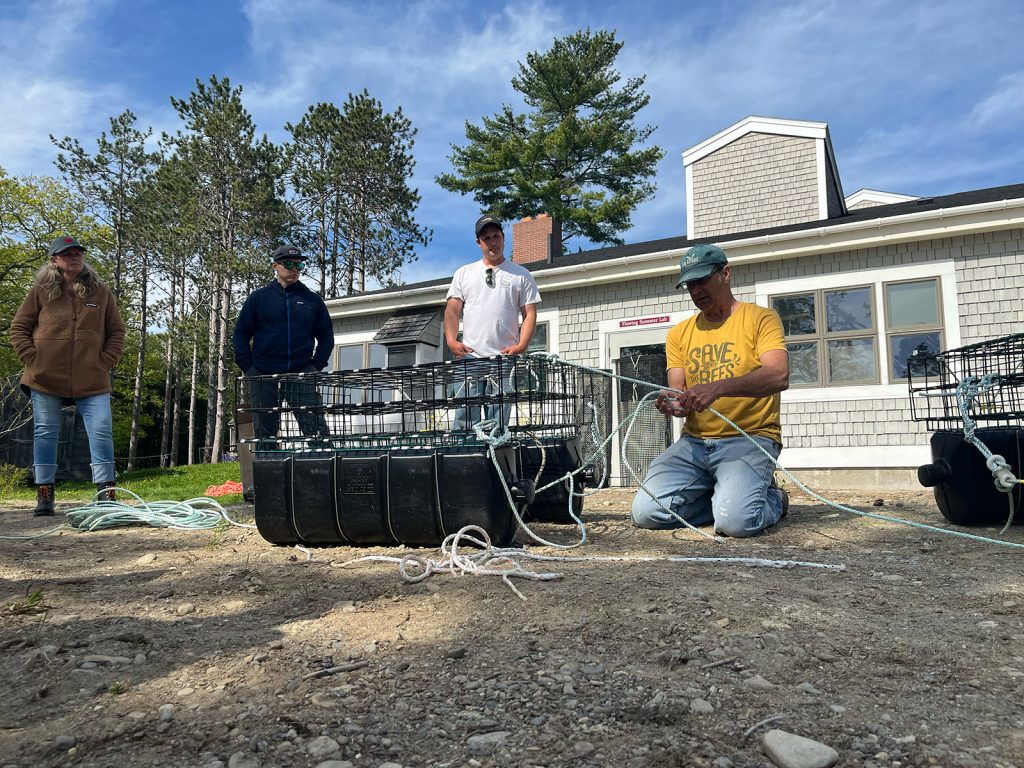
The days were long – packed full from 8 AM to 5 PM – and most of our students chose to stay overnight at the Darling Marine Center. Lunches were full of chatter as people recounted what they’d learned, chewed on questions they still had, and swapped resources with one another. Some gathered in the evenings to rehash the day’s lessons or go for a swim; several organized a celebratory potluck on the last night of the workshop – featuring freshly shucked oysters, of course!
It was rewarding to see our students build confidence – and community – in real time. By Friday afternoon, folks were already making plans to visit one another’s farms and meet up at events throughout the summer. This kind of networking can be really helpful for those just getting into aquaculture, and it encourages more farmer-to-farmer teaching and mentorship, which is arguably one of the defining aspects of Maine’s aquaculture industry and community. Students also had a chance to reflect on the week and set goals within their small groups. One person planned to take out a group of friends on the water this summer to pass on their new navigational skills, while others set goals of scaling up their business or becoming more independent on their own farm rather than relying on members of their co-op to help. In the weeks since, we’ve really enjoyed hearing from participants about how using their new skills has made them feel more empowered on the water.
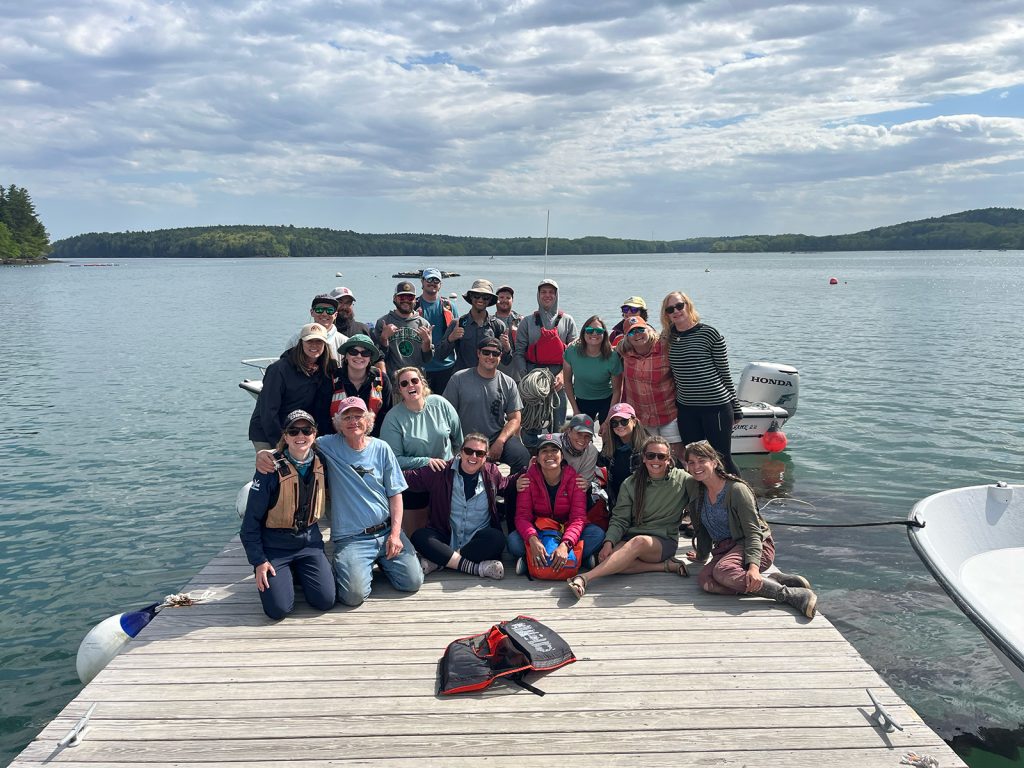
In these days of virtual connection, I remain grateful for opportunities like this to harness the power of in-person, place-based learning and community building. And it was humbling to be reminded by our students that – in aquaculture, and in life – there is always more we can learn!
